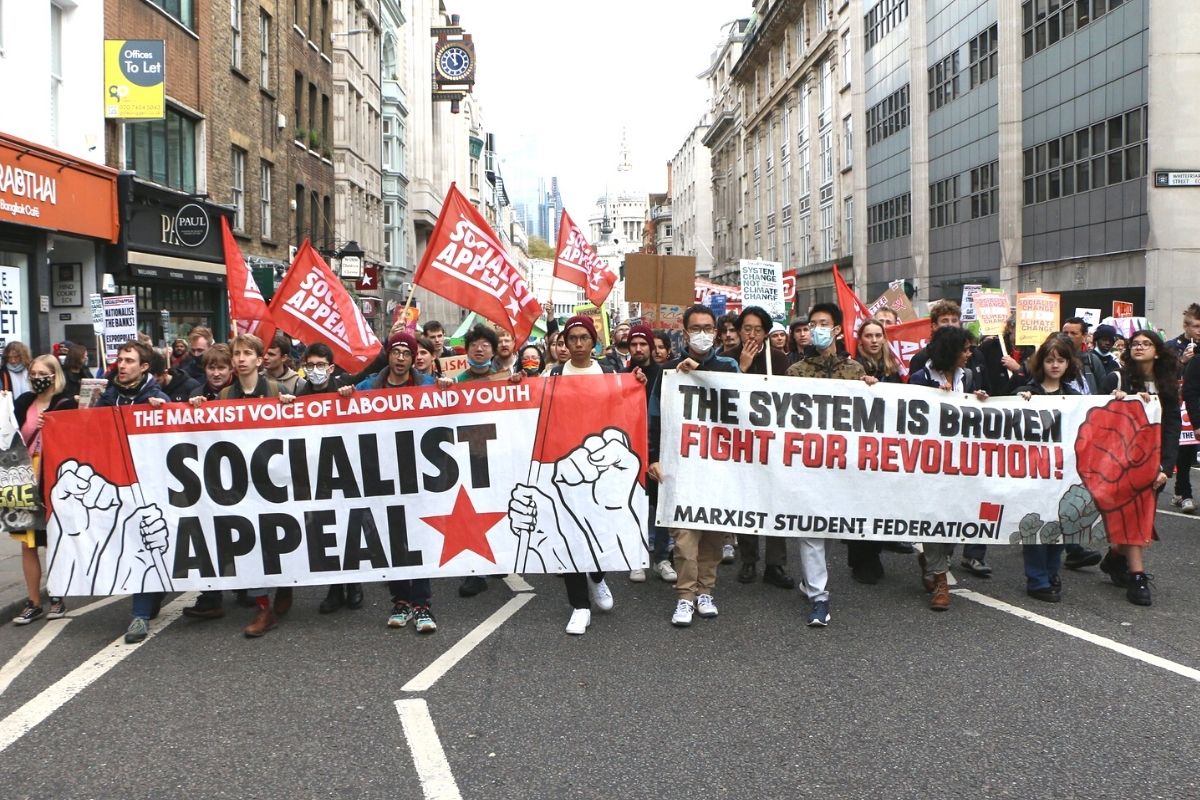A crisis is looming for charities in Britain. Austerity is forcing greater numbers to rely on aid and volunteer networks for vital services, whilst rising living costs bite into donations. Instead of these sticking plasters, we need a revolution.
Britain’s new monarch, King Charles III, is well-known for being a patron of many charitable organisations and causes. But it seems that royal support over the years has not been enough to prevent a crisis spreading across the sector.
On 1 September, 46 UK charities issued a joint statement calling on the government to “urgently deliver meaningful financial support to those in greatest need” amid the cost-of-living crisis. The YMCA also warned incoming prime minister Liz Truss of a potential “meltdown” in the charity sector.
After decades of austerity, rapidly rising living costs, and the biggest fall in out-of-work benefits for 50 years, charitable services have become an important safety net for a society pushed to the brink by the crisis of capitalism.
Food banks are a visible and daily reminder of the crisis in Britain. But charities can be found everywhere: from mental health counselling and legal advice; to palliative care and stem cell transplants.
In fact, public services are so eroded, and private support so costly, that many people are entirely dependent on charities for a whole range of essential services.
On the brink
But as Britain’s social crisis deepens, charities are in no position to address huge social problems like mental health, obesity, or the housing crisis. In fact, the sector is itself on the brink of crisis.
The Charities Aid Foundation (CAF) recently reported that almost five million fewer people had donated to charities in the first quarter of this year; and that millions more – around one-in-eight people – are planning to reduce or stop their donations. Moreover, inflation will wipe half a billion pounds off the value of donations by the end of the year.
This spells disaster for the charity sector, since cuts to government funding have left the sector increasingly reliant on donations from the public. The CAF called rising demand and falling income a “perfect storm”, which is so dire that one third of charities fear bankruptcy.
?️”With tightening household budgets impacting donations, there is a perfect storm facing the sector, and sadly, there are likely to be some charities unable to survive this year.” – Alison Taylor, CEO of CAF Bank.https://t.co/Mz3cgN6YIW
— Charities Aid Foundation (@Caf) August 16, 2022
This mood is reflected in a crisis of public confidence too, with only a third of people believing charities are effective.
They are right to be doubtful. Charities attempt to address the symptoms of a crisis-ridden society, but leave the root cause untouched.
And when all is said and done, charity is merely a way for the ruling class to make the working class pay to paper over the cracks – or fill in the gaping holes – in the capitalists’ rotten system.
Them and us

Many charity workers are heroes: working long hours on low pay; helping vulnerable people across the country, from homeless shelters to mental health units. One-in-seven charity workers earn below a living wage.
But while frontline staff take the hit, senior management receive huge salaries, with many charity CEOs earning over half-a-million pounds every year.
Far from embracing the ‘spirit of sacrifice’ they impose on staff, the bosses are only in it for their personal gain. This summer alone has revealed many such examples.
Trustees of a poverty charity paid out nearly £130,000 to a company they were partners in. A faith charity spent supporters’ donations on luxury hotels and business-class travel for bosses. And the CEO of the charity Parkrun received secret payments in an allegedly dodgy deal.
Indeed, the list of examples of corruption and greed at the tops of major charities is long. And that is before even mentioning the 2018 Oxfam sexual abuse scandal.
Making workers pay
Whilst the bosses at the top reward themselves with massive paychecks and perks, the charity sector is dependent on volunteers, unpaid interns, and low-paid staff.
It is no surprise then that charity bosses are increasingly attacking their workers. In turn, charity and aid workers are increasingly getting organised in unions and taking action.
Last spring, workers at homeless charity St Mungo’s went on strike over pay, unfair disciplinary procedures, and a “bullying and anti-union culture”. And this summer, housing workers at crisis-support charity Hestia were threatened with disciplinary action if they continued to engage in trade union activity.
St Mungo’s refuses to pay staff who are co-parents paternity pay matched to their salary. Where’s the equality? Also refusing enhanced pay for staff working Xmas & Boxing day. Whilst https://t.co/klOe4VU22Y earns over 18,0000 a year – an increase of 68% since 2013. Shameful!
— St Mungo’s Unite (@SMUnite) December 1, 2021
In this light, it is clear what charity bosses’ big salaries, accolades, and OBEs really are – their rewards for defending the status quo.
Socialism

That so many ordinary people dig deep into their own pockets, to try to help others in need, is a sign of the instinctive sacrifice and solidarity of the working class.
But, unfortunately, such good intentions ultimately come to nought. Charities do not address the real causes of social problems and inequality, which are deeply rooted in the capitalist system. In fact, they can even increase inequality: the poorest areas receive less than half the national average of charitable funding.
And why must we, the working class, who produce all the wealth in society, be forced to take on this burden, while parasitic bosses, shareholders, and landlords amass huge private fortunes?
With a socialist plan of production – an economy based on need, not greed – we can eradicate many of the social diseases that charities currently cater for, which ultimately are a product of the decaying capitalist system.
And all the other necessary services, which today are left to a patchwork of increasingly inadequate charities and volunteer networks, could be provided as public services, run under the control of workers and the communities they serve – and properly funded by expropriating the billionaires and bankers.
With a crisis in the charity sector looming, it is clear that philanthropy and aid can no longer paper over the cracks. Instead, we must fight to overthrow the whole rotten system, and for the socialist transformation of society.






